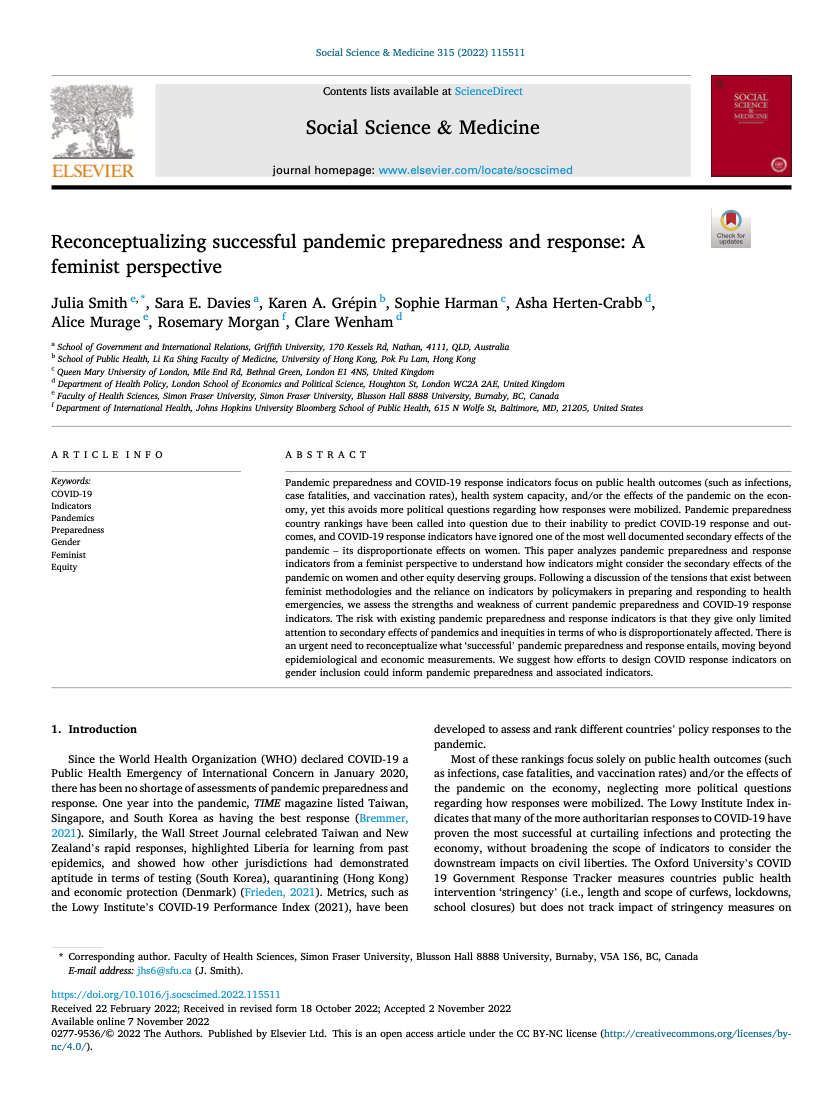Pandemic preparedness and COVID-19 response indicators focus on public health outcomes (such as infections, case fatalities, and vaccination rates), health system capacity, and/or the effects of the pandemic on the economy, yet this avoids more political questions regarding how responses were mobilized. Pandemic preparedness country rankings have been called into question due to their inability to predict COVID-19 response and outcomes, and COVID-19 response indicators have ignored one of the most well documented secondary effects of the pandemic – its disproportionate effects on women. This paper analyzes pandemic preparedness and response indicators from a feminist perspective to understand how indicators might consider the secondary effects of the pandemic on women and other equity deserving groups. Following a discussion of the tensions that exist between feminist methodologies and the reliance on indicators by policymakers in preparing and responding to health emergencies, we assess the strengths and weakness of current pandemic preparedness and COVID-19 response indicators. The risk with existing pandemic preparedness and response indicators is that they give only limited attention to secondary effects of pandemics and inequities in terms of who is disproportionately affected. There is an urgent need to reconceptualize what ‘successful’ pandemic preparedness and response entails, moving beyond epidemiological and economic measurements. We suggest how efforts to design COVID response indicators on gender inclusion could inform pandemic preparedness and associated indicators.
Julia Smith, Sara E. Davies, Karen A. Grépin, Sophie Harman, Asha Herten-Crabb, Alice Murage, Rosemary Morgan, Clare Wenham, Reconceptualizing successful pandemic preparedness and response: A feminist perspective, Social Science & Medicine, Volume 315, 2022, 115511, ISSN 0277-9536, https://doi.org/10.1016/j.socscimed.2022.115511






